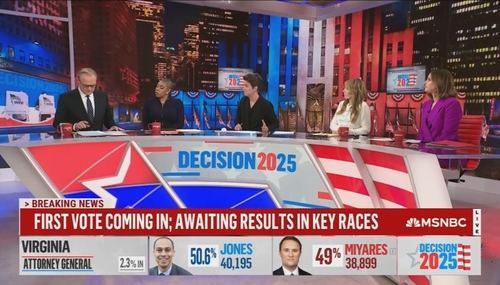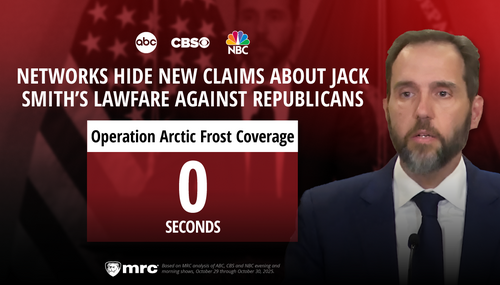**UPDATE Below the Fold**

This Reuters piece is so filled with nonsense, so blind to all the complicated political and social influences that really ended the Cold War, that it is hard to know where to start reviewing it. I can but shake my head at its simple minded analysis.
Seriously. Reuters really means it. Oh, don't confuse them with all that economic and political history gobbledegook. It was one concert that ended a generation of communist oppression not the might of the US and its president determined to destroy the "evil empire." It was "Thunder Road" and "Born to Run" sung in that less then melodic Springsteen style that brought the end to the Cold War.
From the title onward, a half sentient review of history prevails.
"Did Bruce help bring down the Berlin Wall?," the headline asks, with the subhead helpfully telling us that yes is the answer. "His comments at 1988 concert helped fed East Germans' discontent," Reuters earnestly informs us.
See, here is the thing, maybe Bruce's little concert did momentarily add to the zeitgeist of the times, but it had little to do with the final conclusions arrived at. There was no causality. Zip. Nada. In fact, the eventual outcome had already been set in motion before this screeching rocker ever took to the stage.
Just look at the revisionism in this absurd story:
But now -- 20 years after the American rock star went behind the Iron Curtain -- organizers, historians and people who witnessed it say his message came at a critical juncture in German history in the run-up to the Wall’s collapse.
Please, spare us this idiocy.
And look at the puffery they lend to Springsteen.
Springsteen, an influential songwriter and singer whose lyrics are often about people struggling, got permission at long last to perform in East Berlin in 1988.
"Influential" in what way, exactly, Reuters does not say.
All the wild claims of how "important" was the 1988 Springsteen concert in East Berlin aside, there really is one small, almost unnoticeable thing in this story that speaks as to what Bruce Springsteen really is. Tucked into this story are two references that tells us why, exactly, the oppressive East German commies thought that it was a good idea to have Bruce Springsteen come to their benighted city. It was his anti-American political positions.
In two sentences we get the gist of how the East German authorities saw this singer.
Even though his songs are full of emotion and politics, East Germany had welcomed him as a “hero of the working class.” The Communists may have unwittingly created an evening that did more to change East Germany than Woodstock did to the United States.
And...
Dietrich, 63, said Communist party hopes that a small taste of Springsteen might pacify youths backfired. There was even a positive advance review in the Neues Deutschland daily: “He attacks social wrongs and injustices in his homeland.”
In other words, the reason the East German commies thought his appearance might not be such a bad thing is because they felt Springsteen SHARED their principles. They thought they were welcoming a compatriot to their city.
And one of the things Springsteen is reported as having said on stage that night could be construed to show that the East German commies were right.
“I want to tell you I’m not here for or against any government,” Springsteen said, as he pointedly introduced his rendition of the Bob Dylan ballad “Chimes of Freedom.”
He isn't "for or against any government?" He didn't stand against a police state that shot its own citizens just because they wanted to visit another, neighboring country? Bruce wasn't against a state that arrested people, tortured and imprisoned them with no recourse to due process of law? Springsteen wasn't against a country that nearly starved its people to death?
No wonder the East German commies didn't think a Bruce Springsteen concert would threaten their iron grip on the state. They thought he was one of them!
There is so much balderdash in this Reuters piece that I just can't get to each morsel of its blather here. All I can say is that this thing has to be read in its entirety to be believed. Only a full read can make one appreciate the total ignorance of real history and the wild puffery of a self-loathing, over rated singer such as Bruce Springsteen.
(Photo credit: msn.com)
**UPDATE of monumental import**
Stop the presses. It looks like Reuters was behind the curve in assigning the end of the Cold War to a simple songster. The BBC beat Reuters to the punch in 2004 by finding that it was really David Hasselhoff what took down that wall!
Yes, the Hoff, the Hoffenstein, the Hoffmeister, if you will, was really the triumphant Cold Warrior cum warbler.
Did David Hasselhoff really help end the Cold War?
Baywatch star David Hasselhoff is griping that his role in reuniting East and West Germany has been overlooked. So what part, if any, did the hunk in trunks play in ending the Cold War?
Barely a month after the fall of the Berlin Wall in November 1989, the city that had been divided by politics for more than 40 years was united in song...
...You've just GOT to read the rest of this one.




